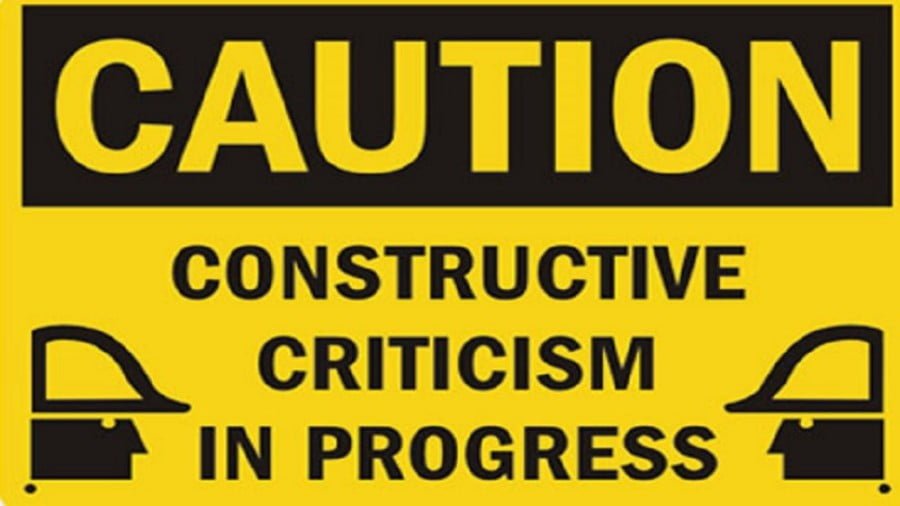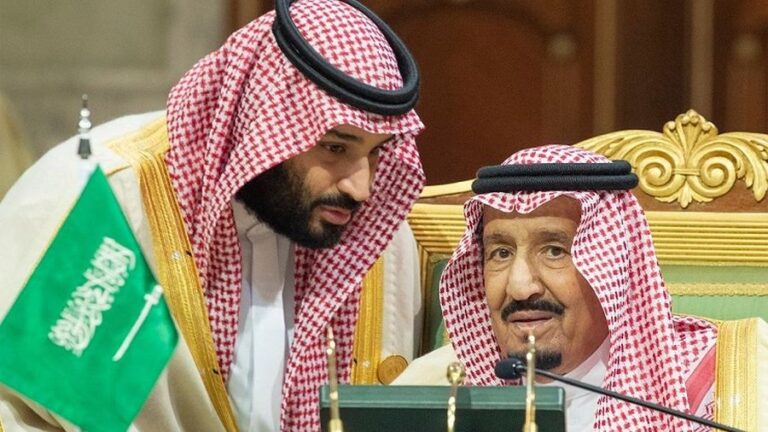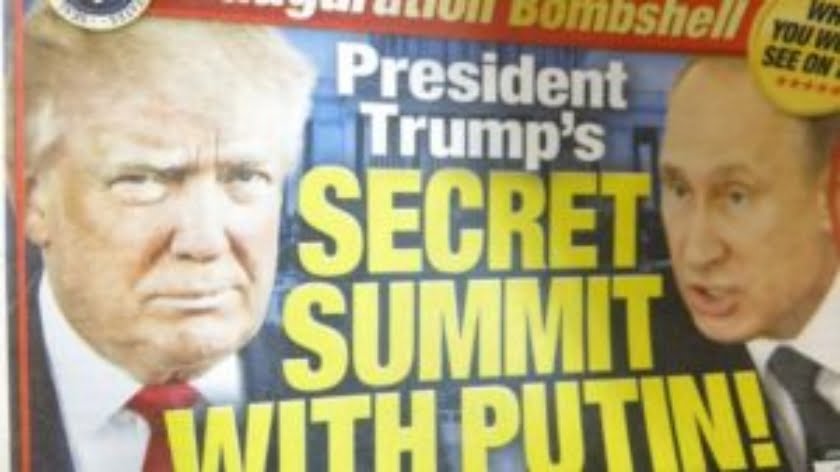Constructive Criticisms of Russian Strategy, and in Particular Towards Belarus
Like all countries, Russia is imperfect and its strategies can always be improved upon, especially in regards to the ongoing Hybrid War on Belarus which surprisingly seems to have caught the Kremlin off guard and forced it to abruptly adapt to increasingly frequent twists and turns that it failed to anticipate.
Undeniable Trouble
Most observers would agree that Russia is reacting to the fast-moving developments related to the ongoing HybridWar on Belarus instead of proactively shaping them in the direction of its strategic interests. This speaks to the fact that the Kremlin surprisingly seems to have been caught off guard by this latest regime change operation in its “sphere of influence”, which has forced it to abruptly adapt to increasingly frequent twists and turns that it failed to anticipate. Like all countries, Russia is imperfect and its strategies can always be improved upon, with this being nowhere more obvious at the moment than when it comes to the crisis in question.
What follows is the author’s well-intended constructive criticisms of Russian strategy towards Belarus which inadvertently contributed to this crisis, whether directly or indirectly. The purpose in sharing them isn’t to jump on the “Russia-bashing bandwagon” but to offer up some sincere and much-needed insight about the country’s strategic shortcomings in the hope that they’ll be addressed sooner than later. There are five constructive criticisms and an equal number of recommendations, with each dealing with their pertinent topic’s relevance to Russian grand strategy more broadly but also to their specific application as regards Belarus.
Constructive Criticisms
* Post-Crimea Hubris Blinded Russian Decision Makers, Experts, And Media
Grand Strategy
Russia became intoxicated with a feeling of near-invulnerability after defying the international community to reunify with Crimea. Threats were downplayed and opportunities exaggerated after the Eurasian Great Power convinced itself that it had returned to its former status as the world’s “second superpower” and driver of global geopolitical change. This hubris blinded Russian decision makers, experts, and media by shaping a groupthink mentality where “triumphalism” reigns while gatekeepers suppress “politically inconvenient” warnings about latent threats. The end result is that problems are rarely dealt with proactively, thus forcing Russia onto the permanent strategic defensive.
Belarus
The Russian Establishment believed that Belarus was a “fraternal Slavic ally” that would never “balance” Russia with the West, let alone pivot towards the latter. All of Lukashenko’s very public statements and moves to this effect were misinterpreted by groupthink as “just another attempt to get more benefits”, thus being dismissed as inconsequential in any grand strategic sense. The author identified Belarus’ westward wanderings as early as May 2015 and published 17 articles about it in the half-decade leading up to the Hybrid War, but by the time that the Russian Establishment realized what was happening, it was too late to proactively change this troubling trajectory. Russia is therefore forced onto the strategic defensive once again.
* Russia’s “Balancing” Act Was Never Articulated
Grand Strategy
Russia’s 21st-century grand strategy is to become the supreme “balancing” force in Afro-Eurasia, to which end it’s prioritizing relations with non-traditional partners at what some of its traditional ones perceive to be their expense. This was explained at length in the author’s May 2018 analysis about “Russia’s Grand Strategy In Afro-Eurasia (And What Could Go Wrong)“, where it was pointed out that Moscow’s failure to articulate its “balancing” act to traditional partners risked provoking “strategic dilemmas” with them that would in turn create opportunities for the US to make inroads in spreading its influence. Armenia was briefly touched upon as an example, but the same holds true for Belarus too.
Belarus
With Russia “balancing” this way and that ever since the Ukraine Crisis without any articulated sense of purpose, Belarus naively felt that it could emulate its “big brother” by doing the exact same thing vis-a-vis Russia and the West in pursuit of its own self-interests. It certainly had the sovereign right to do this irrespective of the risks involved, but by following Russia’s poor example of not explaining its actions, it enticed the West into thinking that Belarus intended to pivot towards it and away from Moscow. In response, the West began reaching out more aggressively to Belarus with the intent of “poaching” it from Russia’s “sphere of influence”, which Minsk eventually went along with after it felt taken for granted by Moscow.
* Taking Partners For Granted Always Ends Badly
Grand Strategy
Driven by hubris and thus neglecting to articulate its “balancing” strategy to its partners, Russia inadvertently triggered “strategic dilemmas” among many of its traditional ones, especially Armenia, Belarus, India, Iran, and Serbia. Moscow took their “geopolitical loyalty” for granted after convincing itself that they’d inevitably and irreversibly gravitate towards it out of their shared interests in accelerating the emerging Multipolar World Order by following the lead of the world’s “second superpower”. Instead, they all chose to “balance” Russia with other partners, with Armenia, Belarus, India, and Serbia doing so with the West while Iran did the same with China. The outcome was that Russia’s influence with each of them diminished since the Ukraine Crisis.
Belarus
The “strategic dilemma” that was brought about by the miscommunication (or rather lack of communication in this regards) between Russia and Belarus over their respective “balancing” acts was exploited by the West to convince Lukashenko that their anti-Russian information warfare narratives about its allegedly aggressive intentions towards his country were true. Both sides’ failure to “compromise” on Russia’s insistence that Belarus intensify their integration through the “Union State” framework in exchange for indefinitely continuing to subsidize its partner’s economy with cheap energy exports, and Minsk’s refusal to take any further steps in that direction, was interpreted by Lukashenko as confirming the West’s claims and drove his pro-Western pivot.
* Prioritizing “Deep State” Engagement Has Its Limitations
Grand Strategy
Unlike during the Soviet period, modern-day Moscow places little importance on engaging foreign masses apart from “validating” some of their preexisting views about their country and its role in the world through RT’s “reporting”, whether this is presented in a positive, negative, or mixed light, the latter of which for maximum attention. Instead, the Russian state prioritizes engaging with its “deep state” counterparts in other countries’ military, intelligence, and diplomatic bureaucracies, especially when the two countries are on friendly terms with one another. The limitation to this strategy, however, is that Russia is then portrayed as “propping up unpopular leaders” and possibly even “contributing to their corruption” during times of regime change crisis.
Belarus
The limitations of this strategy are especially visible in the Hybrid War on Belarus. Although most of the anti-government masses aren’t explicitly anti-Russian, many have the sense (whether justified or not) that Lukashenko was able to rule as long as he did through a series of allegedly “disputed” elections due to direct Russian “deep state” support. This dangerously risks turning into the same situation that afflicted Armenia during its 2018 “Velvet Revolution” unrest where the organizers of this destabilization where ultimately able to redirect some of the masses’ genuine anger against former President Serzh Sargsyan towards Russia, which greatly damaged its soft power standing in Armenian society to this day.
* Neglecting Foreign Civil Societies Is A Mistake
Grand Strategy
Building off of the last-mentioned category of constructive criticisms, post-Soviet Russia’s neglect of foreign societies is a massive mistake which greatly reduces its political flexibility during times of Color Revolution crisis. Any subsequent outreaches to civil society and opposition groups aren’t deemed credible, being perceived instead as opportunistic or even desperate in the worst-case scenario. This greatly reduces Russia’s chances of shaping the course of forthcoming events since it has much less leverage than if it had engaged these actors from the get-go like the US always does with friends and foes alike. Because of this, the power dynamics have flipped and Russia needs such forces’ support more than the reverse.
Belarus
Russia hitherto naively assumed largely due to its post-Crimea hubris that Belarusian society would always remain firmly aligned towards Moscow, which was a mistaken assessment that led to it failing to detect latent anti-Russian political trends in that country. Russia is now forced to either double down on supporting Lukashenko in an all-or-nothing gamble or scramble to secure the support of influential civil society and opposition forces, something that it has scant experience doing. It’s of course comparatively easier to attempt this in the Belarusian context that anywhere else in the world but it nevertheless means that Russia must play catch-up to in regaining the edge that it unwittingly ceded to the West.
Practical Recommendations
* Recognize Reality
Grand Strategy
A lot of Russia’s foreign policy shortcomings could have been avoided had its establishment recognized reality as it objectively exists. Believing their own “wishful thinking” narratives blinded them to what was happening, and thinking that their country is “always winning” made them not take the threats that they eventually became aware of seriously enough until it was too late. It is better to overestimate threats than to underestimate them, but one should always be careful not to overreact of course. Russia is regularly criticized in the West for being “paranoid”, but the author argues that it’s actually not “paranoid” enough, and that the West’s narrative is just a means to manipulate its “strategic culture” into not proactively dealing with threats.
Belarus
The groupthink that set in with regards to Belarus made the Russian Establishment believe that Lukashenko’s outreaches to the West were yet another one of his “famous” ploys to get more benefits from Moscow. They were therefore unable to accept that everything was different after Crimea and that the situation gradually became more serious. Underestimating his resolve to “balance” relations with Russia after what he came to believe was its “overbearing” influence on his country prevented the Russian Establishment from realizing that it must proactively improve the situation before it became critical and entered the mutually disadvantageous trajectory that it ultimately did. This could have been avoided had Russia’s “strategic culture” been different.
* Embrace “Balancing”
Grand Strategy
Russia has a unique opportunity to replace the global attention that India’s now largely discredited “multialignment” policy previously received with its own much more credible variant so long as it proudly embraces this strategy. To that end, it must openly incorporate such language into its foreign policy statements and related planning documents. For maximum effect, capable surrogates in the diplomatic, expert, media, and civil society communities must be empowered to articulate this strategy as widely as possible, especially in the context of Russia’s many pairs of “balancing” partners such as rivals Armenia & Azerbaijan, China & India, China & Vietnam, Croatia & Serbia, India & Pakistan, Iran & “Israel”, and Syria & Turkey.
Belarus
Russia should recognize Belarus’ reasons for wanting to “balance” it with the West, and instead of overreacting to this development, it should seek to address some of its partner’s concerns that inspired it to undertake this move in the first place. This of course assumes that Minsk didn’t have any ulterior motives and that everything that transpired between the two in the past few years and especially since the start of the present one was just an unfortunate misunderstanding due to miscommunication. What Belarus wants is to feel as close to an “equal partner” with Russia as possible even if this isn’t realistic in practice given their power asymmetries. Moscow’s reluctance to compromise with Minsk on energy and integration made its partner feel taken for granted.
* There’s No Shame In Compromising
Grand Strategy
As a Great Power, Russia is already predisposed to the idea that other countries need it more than the reverse, which is true to a large extent but shouldn’t ever be used as an excuse not to compromise with smaller- and medium-sized partners. If Russia doesn’t meet their needs, then they can easily “balance” it with the West, as Moscow has learned the hard way in recent years with practically all of its traditional partners in one way or another. Nevertheless, Russia should always be wary of these same partners trying to take advantage of it through these means. Moscow must avoid setting a bad precedent that others could follow such as giving in to “geopolitical blackmail”, but it also mustn’t refuse to consider legitimate requests to compromise.
Belarus
The problem with Belarus is that there was a serious trust deficit in effect due to their “miscommunication” that the odds of Russia compromising with it at the start of the year were nil since it suspected Lukashenko of having ulterior motives with his “balancing” act. He also made the mistake of publicly upping the stakes so high with his harsh statements that Russia couldn’t possibly “save face” if it gave him what he wanted otherwise it risked looking like it surrendered to what seemed to be his “geopolitical blackmail” at the time. Now that Lukashenko is fighting for his political life, he might be willing to compromise a bit on his own, which in turn could make Russia more pliable as well and thus “meet him in the middle” for an integration-energy deal.
* Diversify “Deep State” Relations
Grand Strategy
Prioritizing “deep state” engagement with foreign partners leads to strategic dependence that hamstrings Russia’s flexibility in times of crisis. That’s not to say that Russia should radically reverse its position and neglect other countries’ “deep states” just like it mostly does with their civil societies in the present since otherwise the West might “poach” them, but just that it must at least choose its partners more wisely. In addition, Russian state surrogates (diplomats, experts, media professionals, and civil society members) shouldn’t shy away from constructively criticizing their country’s foreign “deep state” partners when it’s warranted such as during abuse of power and corruption cases since this also helps build credibility with civil society and the opposition.
Belarus
By the very nature of the country’s political composition, its “deep state” (and especially its security and intelligence wings) is second in importance only to Lukashenko himself. Russia presumably has extensive ties with these naturally shadowy figures, none of whom was ever allowed to “step out of line” and even hint at the possibility of one day challenging the “father of the nation”. This understandably limited Russia’s public engagement of Belarus to focusing almost exclusively on Lukashenko, exactly as he wanted, so there isn’t much that Moscow could have done better in hindsight. Secretly cultivating members of the elite for the contingency scenario of having to “replace” Lukashenko would have been too provocative to risk in any meaningful way.
* “Balance” Foreign “Deep States” With Their Civil Societies
Grand Strategy
Ideally, Russia will realize the strategic risks of being too dependent on “deep state” ties for managing its foreign partnerships and will thus seek to “balance” them by more robust civil society engagement, including with responsible members of the opposition (i.e. those that aren’t gunning for regime change in collaboration with foreign forces and encouraging members of the public to carry out acts of violence in pursuit of this). Except in very few cases like with China for instance, it isn’t mutually exclusive for Russia to have excellent relations with a foreign partner’s “deep state” and civil society (including influential businessmen) since the US has been doing this for decades. If successful, then Russia could more flexibly adapt to most crisis scenarios.
Belarus
Russia’s best chance to make up for its prior civil society shortcomings in Belarus is to recruit Lukashenko’s support in this respect. It sounds almost counterintuitive since he’d previously lambasted them for allegedly trying to destabilize the country before the elections, but now that he’s backed himself into a corner through his failed “balancing” act, he might have finally learned that his beloved Belarus has no practical alternatives (yet?) to integrating with Russia. In the event that Lukashenko thinks that his days are numbered, then he as the “father of the nation” has the responsibility to work closely with Russia in carrying out a “phased leadership transition” — perhaps via his reportedly Russian-friendly rival Babariko — to ensure Belarus’ survival.
Concluding Thoughts
Russia urgently needs to reform its “strategic culture” from the top-down in order to remove the hubris-influenced groupthink that’s pervaded this community since Crimea’s reunification. Failure to do so will only lead to more repeats of EuroMaidan in the post-Soviet space, perhaps in Kazakhstan next or even Kaliningrad in the worst-case scenario. It’s frustrating for well-intended observers of Russian strategy to see the partial replication of this foreign-backed regime change Hybrid War playing out once again after six years, and this time in the territory of a country that’s Russia’s CSTO, Eurasian Union, and even “Union State” partner. The very fact that this is happening suggests that not many lessons were learned since EuroMaidan.
Nevertheless, there’s cause for cautious optimism. Russia is flexibly adapting to the fast-changing developments in Belarus, which is impressive considering how caught off guard it’s been this entire time. In addition, President Putin’s 2018 address to the Federal Assembly contained many constructive criticisms of Russia, which made it more acceptable for folks to talk about the country’s many problems. Furthermore, he declared last summer that Russia doesn’t aspire to regain its superpower status, which tempered its establishment’s post-Crimea delusions of grandeur. Considering everything that Russia is learning (albeit the hard way) from the Hybrid War on Belarus, there’s reason to believe that everything might finally be changing for the better.








One Comment